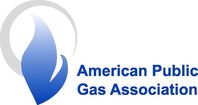
APGA sent a letter to the Senate Committee on Energy and Natural Resources on December 8 in support of Ms. Honorable’s nomination. In the letter, APGA communicated that ““Ms. Honorable’s experience as Chairman of the Arkansas Public Service Commission has provided her with a strong understanding of the energy industry and the ability to act in the best interests of American energy consumers, the intended beneficiaries of the Natural Gas Act and the Federal Power Act.” The letter also stated that Ms. Honorable’s “leadership on the Federal Advisory Committee at the Department of Transportation’s Technical Pipeline Safety Standards Committee and service on NARUC's Pipeline Safety Task Force has provided her with insight into infrastructure challenges in the gas industry.”
APGA meets with the FERC commissioners twice a year as a means to communicate information and positions on federal regulatory matters of concern to public gas systems. APGA leadership last met with the FERC commissioners in early December. These meetings play a critical role in APGA’s advocacy efforts as they have allowed APGA to develop and maintain a relationship with the commissioners.
In other FERC related news, on November 26, APGA filed comments with FERC in response to a notice of proposed rulemaking (NOPR) on gas-electric coordination. In March, FERC approved a NOPR on gas-electric coordination that proposes, among other things, to: move the start of the gas day from its current 9:00 a.m. CST to 4:00 a.m. CST; move the timely nomination deadline from 11:30 a.m. CST to 1:00 p.m. CST; and, provide four standard intraday nomination cycles at 8:00 a.m., 10:30 a.m., 4:00 p.m., and 7:00 p.m. with the last intraday cycle remaining a no-bump cycle. The move in the start of the gas day time is being driven by some in the electricity sector who want more time to meet the morning ramp-up period and flexibility to revise their nominations as needed by dispatch requirements. This issue has major significance on public natural gas system since any changes to the start of the gas day will have both direct and in-direct costs associated with it.
In its comments, APGA states that efforts to improve gas-electric coordination should not result in unintended adverse consequences such as shifting risks/costs among shippers or degrading services to other pipeline shippers. APGA’s comments also strongly communicate the association’s concerns regarding the direct and in-direct costs, with no apparent benefits, that will be imposed upon public gas systems as a result of the change in the start of the gas daytime imposed by the NOPR. To drive home the cost impacts, attached to APGA’s comments are several affidavits from APGA members that directly communicate the anticipated costs that will be imposed upon their system. Examples of costs that would be incurred include the hiring and training of additional personnel to be in the office at a 4:00 a.m. gas day start time to manage scheduling and ensure that the system stays in balance.
In addition to APGA’s comments, APGA also joined comments filed by the Natural Gas Council (The Natural Gas Council is made up of the: American Gas Association, America’s Natural Gas Alliance, the Independent Petroleum Association of America, the Interstate Natural Gas Association of America, and the Natural Gas Supply Association) to demonstrate to the Commission a united gas industry that supports retaining the 9am Gas Day start time. A copy of APGA’s comments as well as those filed by the Natural Gas Council are available on the APGA website at www.apga.org.
For questions on APGA’s legislative and regulatory actions, please contact Dave Schryver by phone at 202-464-2742 or by email at [email protected].

 RSS Feed
RSS Feed
